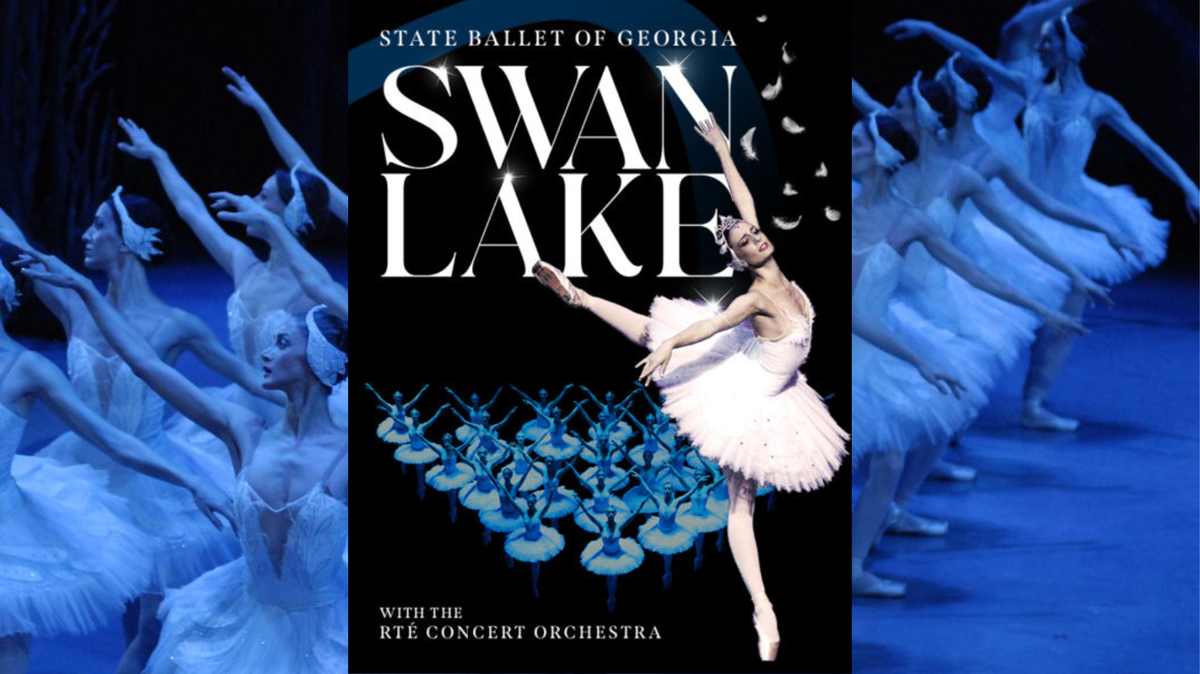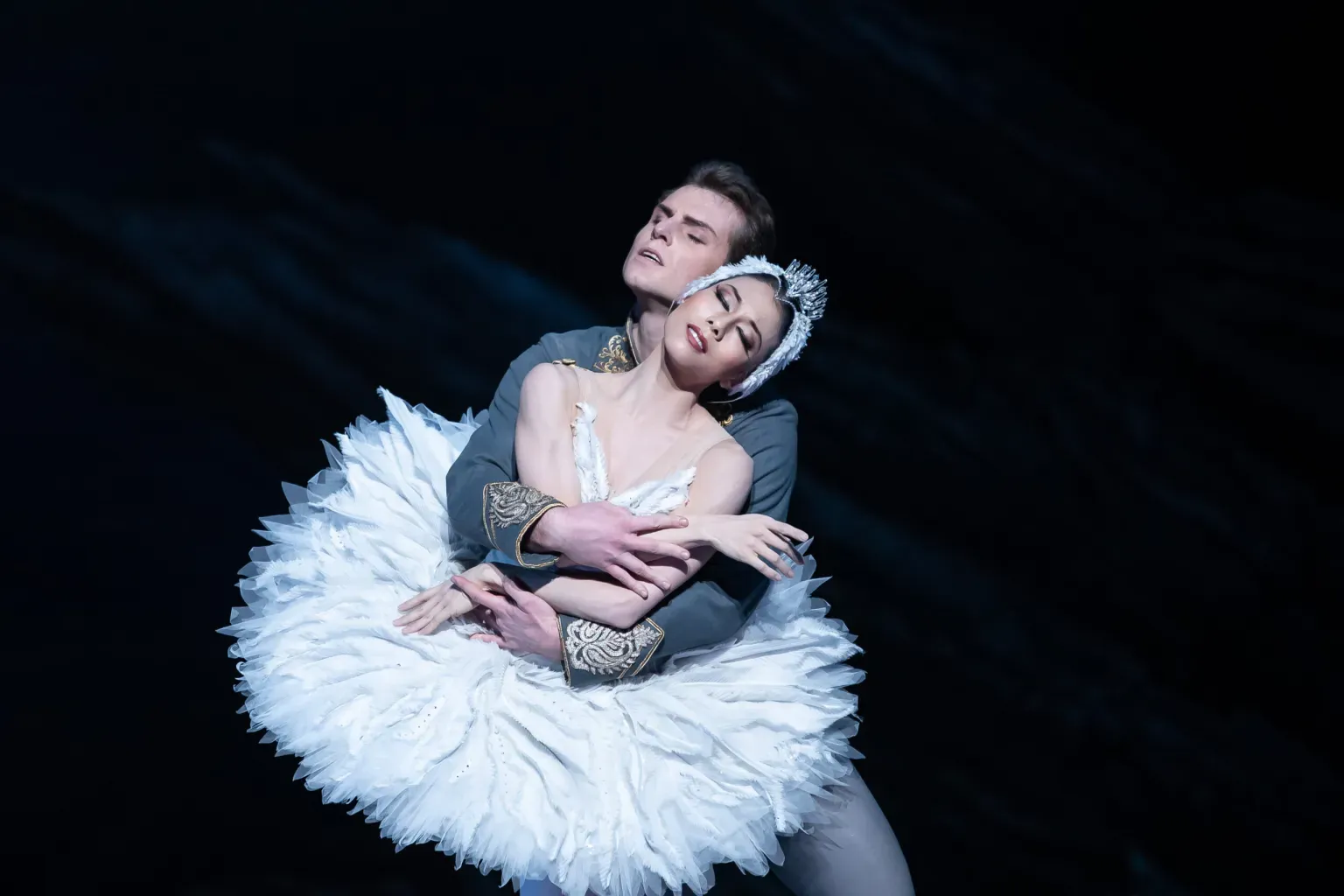Swan Lake, The Iconic Ballet is Coming to Dublin This November
For the first time in its 175-year history, the acclaimed State Ballet of Georgia will perform a full-length classic production of Swan Lake at Bord Gáis Energy Theatre.

Bord Gáis Energy Theatre in Dublin will host the acclaimed State Ballet of Georgia for a full-length classic production of Swan Lake, accompanied by the RTÉ Orchestra, from 20th to 24th November 2024.
Swan Lake is undoubtedly one of the most famous ballets of all time, celebrated for its stunning choreography, emotive music, and timeless tale of love, betrayal, and redemption. Composed by Pyotr Ilyich Tchaikovsky in 1875–76, the ballet tells the tragic story of Prince Siegfried and Princess Odette, who has been cursed to live as a swan by day and a woman by night. With its powerful narrative and majestic performances, Swan Lake has earned its place as a cornerstone of classical ballet.

The Origins of Swan Lake
In the 19th century, ballet was evolving into a prestigious art form across Europe, particularly in Russia, where it flourished under the Imperial Theatres. Tchaikovsky, already renowned for his symphonies and operas, was commissioned by Vladimir Begichev, the director of Moscow’s Bolshoi Theatre, to compose a ballet. The result was Swan Lake, Tchaikovsky’s first full-length ballet.
The world premiere of Swan Lake took place at the Bolshoi Theatre in Moscow on 4th March 1877, with choreography by Julius Reisinger. However, the initial performance was not successful. Reisinger’s choreography was widely criticised as uninspired, and the dancers struggled with the complexity of Tchaikovsky’s score, which was considered overly symphonic for the dancers. Critics found the production confusing, and the ballet failed to leave a lasting impression.
Nevertheless, Tchaikovsky’s music was appreciated by some for its emotional depth and grandeur. It wasn’t until many years later that Swan Lake would achieve the iconic status it holds today.
Following Tchaikovsky’s death in 1893, Swan Lake was revived in 1895 by the Mariinsky Theatre in St. Petersburg. This production, choreographed by Marius Petipa and Lev Ivanov, is the version that remains most widely performed today and was the key to transforming Swan Lake into a masterpiece.
Marius Petipa choreographed the formal court scenes (Acts I and III), while Lev Ivanov took on the lyrical, emotional sections set by the lake (Acts II and IV). Ivanov’s "White Acts" (as the lakeside scenes are often called) are particularly famous for their use of the corps de ballet, where the synchronised movements of the swans create one of the most visually iconic scenes in all of ballet.
The story of Swan Lake
Swan Lake is a ballet in four acts. While different productions may offer variations, the most widely accepted storyline is as follows:
Act I:
The ballet opens with Prince Siegfried celebrating his 21st birthday in the royal gardens. His mother, the Queen, reminds him that he must soon choose a bride from eligible princesses. Feeling overwhelmed by his impending responsibilities, Siegfried escapes into the forest in search of peace.
Act II:
Near a mysterious lake, Siegfried encounters a group of swans. Just as he aims his bow to shoot one, the swan transforms into a beautiful woman named Odette. She explains that she and her companions are victims of a curse by the evil sorcerer Rothbart, which forces them to live as swans by day and as women by night. The curse can only be broken if someone swears undying love and fidelity to her. Moved by her plight, Siegfried pledges his love to Odette, unaware that Rothbart lurks nearby, ready to keep the curse intact.
Act III:
Back at the castle, Siegfried is expected to choose a bride at a grand royal ball. Rothbart arrives in disguise with his daughter, Odile, whom he has magically transformed to look exactly like Odette. Seduced by Odile’s charm, Siegfried, believing her to be Odette, declares his love. When Rothbart reveals the deception, Siegfried is devastated, knowing that he has inadvertently condemned Odette to remain under the sorcerer’s spell.
Act IV:
Siegfried returns to the lakeside to seek Odette’s forgiveness. Though she forgives him, she knows that the curse cannot be broken. Depending on the version of the ballet, the ending varies:
- In many versions, the lovers choose to die together by drowning in the lake, an act that destroys Rothbart’s power and frees the swan maidens.
- In some versions, Rothbart is directly defeated, allowing for a triumphant conclusion where Siegfried and Odette live happily ever after.
The music of Swan Lake
Tchaikovsky’s score for Swan Lake is regarded as one of the most sublime in ballet history. Using leitmotifs, or recurring musical themes, he created an emotional landscape that aligns with the characters and events of the story. The main Swan Theme, which recurs throughout the ballet, is one of the most recognisable melodies in classical music, evoking both the beauty and the sorrow of Odette’s tragic situation.
Tchaikovsky’s score is richly varied, from the stately court dances of the royal ball to the dreamy, flowing melodies of the "White Acts" by the lake. One of the most famous pieces from Swan Lake is the "Dance of the Little Swans" (Pas de Quatre), which has become synonymous with the technical precision and grace of classical ballet.
Though its early performances were rocky, the 1895 revival by Petipa and Ivanov ensured that Swan Lake became a pillar of classical ballet. Today, it is performed by ballet companies around the world and remains a symbol of the art form’s grace and enduring emotional power.
The dual role of Odette/Odile is considered one of the most demanding and prestigious in ballet. It requires a dancer to embody the purity and vulnerability of Odette, as well as the seductive and manipulative nature of Odile. Many of the world’s greatest ballerinas, including Anna Pavlova, Galina Ulanova, and Margot Fonteyn, have achieved fame through their interpretations of this role.
Beyond the world of ballet, Swan Lake has influenced popular culture, from film adaptations such as Black Swan (2010) to references in fashion, commercials, and contemporary dance.
Swan Lake is a testament to the enduring appeal of classical ballet, a marriage of Tchaikovsky’s extraordinary music and the breathtaking choreography of Petipa and Ivanov. Its tale of love, sacrifice, and redemption has enchanted audiences for generations, and its place in the cultural canon is assured.
Don’t miss the opportunity to experience this timeless masterpiece live at the Bord Gáis Energy Theatre in Dublin from 20th to 24th November 2024 – a ballet that continues to touch hearts and stir the soul.





